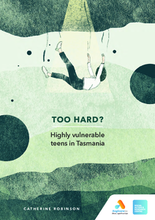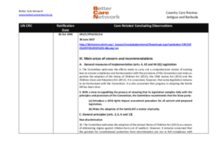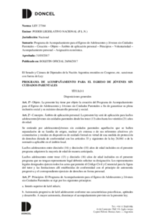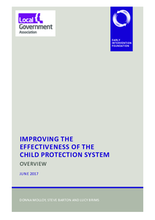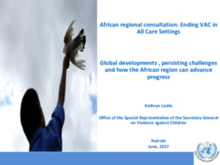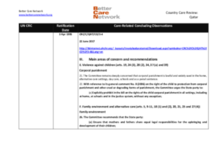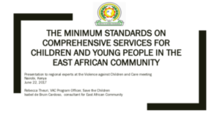Displaying 791 - 800 of 1796
This paper analyses comparative child welfare administrative data from each of the four jurisdictions of the UK over a ten-year period to examine rates and patterns of public care for children.
This report presents the findings of an investigation on a cohort of highly vulnerable teens (aged 10-17 years) whose needs for care have fallen outside families, between government agencies and between non-government services. The report identifies the gaps in care received by this cohort and offers key recommendations for how these gaps might be filled.
This country care review includes the care-related Concluding Observations adopted by the Committee on the Rights of the Child during the seventy-fifth session (15 May 2017 - 2 Jun 2017) of the Convention on the Rights of the Child.
This article is an historical analysis of the association between interventions for neglect and attitudes to poverty in English speaking countries, with reference to specific countries by way of illustration.
La presente ley tiene por objeto la creación del Programa de Acompañamiento para el Egreso de Adolescentes y Jóvenes sin Cuidados Parentales a fin de garantizar su plena inclusión social y su máximo desarrollo personal y social.
This overview report provides a summary of key findings and lessons from five detailed research papers investigating what has proven to improve outcomes for children in the child protection system, what programs and services are delivered locally in the child protection system, and what is known about the overall effectiveness of the child protection system.
This presentation provides an overview of recent efforts and developments to end violence against children in all care settings around the world. Persisting global challenges and opportunities at the national, regional and global levels to end violence against children are also identified.
This country care review includes the care-related Concluding Observations adopted by the Committee on the Rights of the Child during the seventy-fifth session (15 May 2017 - 2 Jun 2017) of the Convention on the Rights of the Child.
This presentation provides a background on the East African Community (EAC) Child Policy (2016) and describes the minimum standards and corresponding framework and strategies for providing services to children and young people within the East African Community.
This country care review includes the care-related Concluding Observations adopted by the Committee on the Rights of the Child during the seventy-fifth session (15 May 2017 - 2 Jun 2017) of the Convention on the Rights of the Child.

